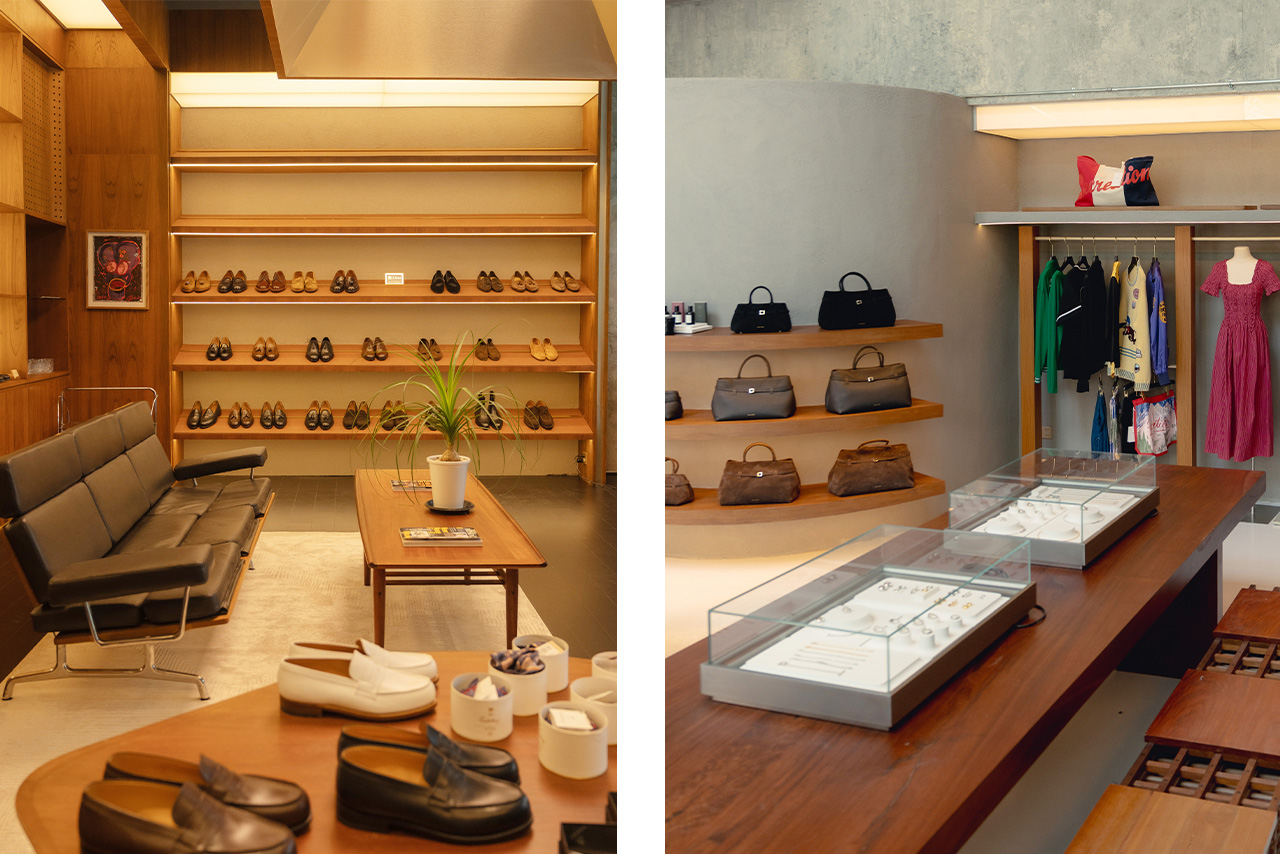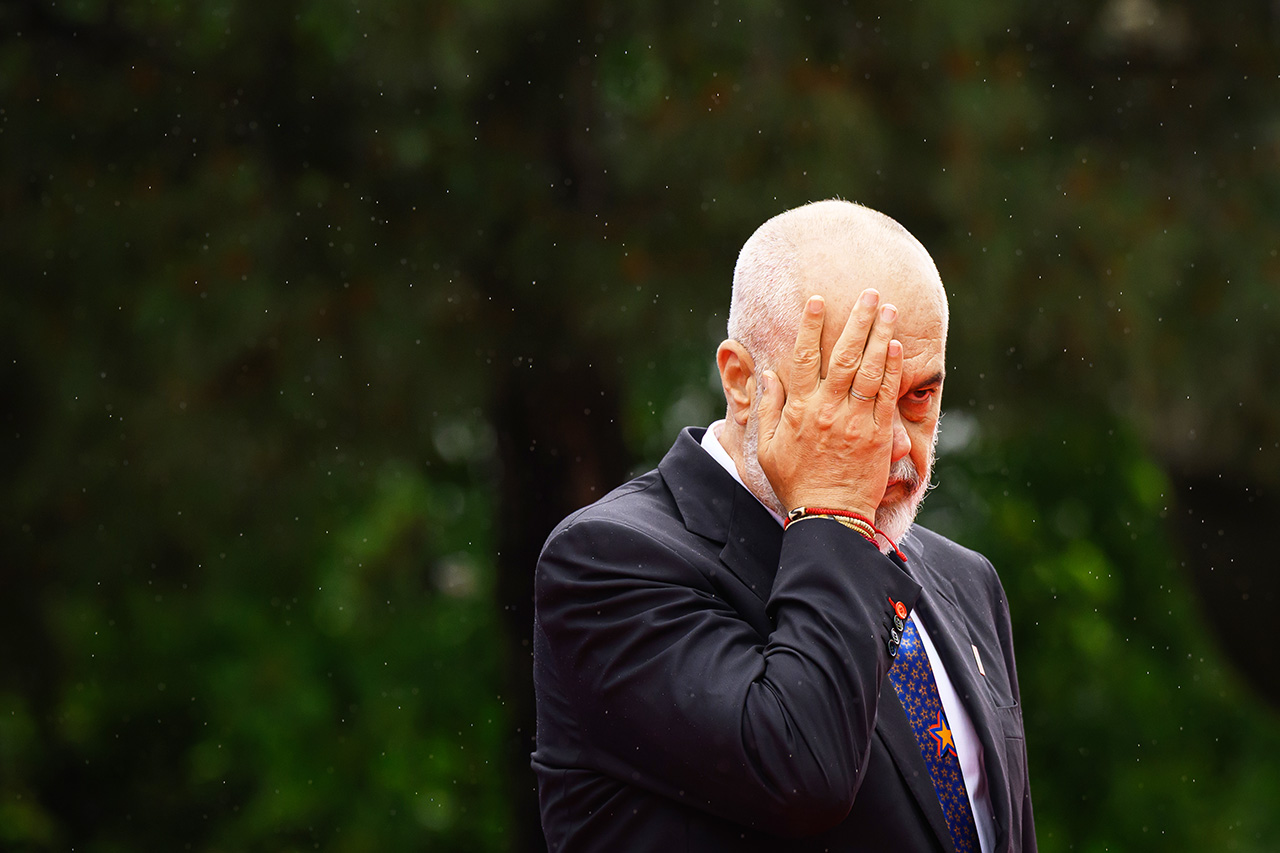The dangers of AI-powered governance, Bangkok’s one-stop fashion shop, treat yourself to Portuguese fare in Toronto and what Europe can learn from Ukraine about downing drones.
|
Monday 15/9/25
|

|
|
London
Paris
Zürich
Milan
Bangkok
Tokyo
Toronto
|
|
|
|

Good morning from Midori House. For more news and views, tune in to Monocle Radio or visit monocle.com. Here’s what’s coming up in today’s Monocle Minute:
THE OPINION: Is Norway too rich for its own good?
RETAIL: Bangkok’s one-stop fashion shop
POLITICS: The dangers of AI-powered governance
DAILY TREAT: Treat yourself to Portuguese fare in Toronto
THE LIST: What Europe can learn from Ukraine about downing drones
|
|
Fortune and friction: Norway’s politics of plenty
By Lars Bevanger
|

|
It’s not always easy being rich – just ask Norway’s prime minister. Following re-election last week, Jonas Gahr Støre holds the nation’s purse strings as a cast of competitive coalition partners and critics from the populist right-wing Progress Party pull him in opposing directions. Having grown immensely wealthy from its oil and gas reserves in the North Sea, Norway and its politics have come to be defined by how to use its abundance. As of today, it has successfully squirrelled away €1.7tn into a handy sovereign wealth fund.
A savvy fiscal rule says that no more than 3 per cent of the fund’s returns can be spent each year. But that is still a huge pot – more than €50bn on top of Norway’s annual GDP. The Labour Party preaches prudent spending on Norway’s already generous welfare system, while its supporters in parliament – the Socialist Left, the Centre Party, the Communist Red Party and the Greens – want to spend more oil money on everything from regional development to green-energy initiatives. The Conservatives and the Progress Party, however, want to cut taxes and offer other incentives for businesses to stimulate growth. A tale as old as time, maybe. But there’s concern that the nation’s affluence has fostered a sense of economic complacency. The title of Norwegian economist Martin Bech Holte’s bestselling book earlier this year is telling: Landet som ble for rikt (The Country That Became Too Rich).

Deep pockets: Equinor ASA offshore oil drilling platform in the North Sea
Yet there are more pressing problems facing the Labour government – and indeed the entire Norwegian nation. The wealth fund’s mandate is to grow Norway’s petroleum revenues, which it seeks to do by investing in some 9,000 companies globally. But it has recently come under fire for investing in Israeli companies involved in the war in Gaza.
The Socialist Left has said that full divestment from all companies that contribute to Israel’s “war crimes, occupation, or genocide” is a condition for them propping up Labour in parliament. Along with the Greens, they also want to reform or even replace the wealth fund’s independent ethics council, giving parliament greater control over ethical guidelines. This is problematic.
The fund is supposed to be – and must be – apolitical. Some ethical investment decisions are relatively straightforward, such as avoiding companies involved in tobacco or nuclear weapons. An issue arises, however, if the fund could be accused of making decisions based on the political leanings of a sitting government. Both the wealth fund and the country would become vulnerable to foreign political pressure. The Trump administration, for instance, has already shouted foul over the fund’s divestments from US construction company Caterpillar, whose machines are used by the IDF in Gaza. Trump could choose to impose further tariffs on, say, Norwegian salmon as a retaliation.
The Norwegian case, while a first-world issue, is singular. Other major sovereign wealth funds do not face the constraints of public and political pressure that exist in Norway’s liberal democracy. The Abu Dhabi Investment Authority, China Investment Corporation and Singapore’s Temasek Holdings are all free to focus on financial returns over ethical or political considerations.
Yet unlike the Gulf and other petrostates, there is still broad agreement from citizens on the need for some form of moral process as to how the money is invested. Norwegians will be tackling a far more fundamental question in the coming parliamentary period: when to cease extracting oil and gas from the North Sea?
Lars Bevanger is Monocle’s Oslo correspondent. For more opinion, analysis and insight, subscribe to Monocle today.
|
|
retail: thailand
The Decorum’s new one-stop shop at One Bangkok
Thai fashion retailer The Decorum has opened its biggest shop to date at One Bangkok, a mixed-used shopping, office and hotel development adjacent to Lumpini Park (writes James Chambers). The Decorum Park House is the first time that mens and womenswear has been brought under the same roof, together with the lifestyle brands stocked by sister brand Club Luminaries. “It feels very similar to our store in Ari, just on a bigger scale, that’s why I like it,” says co-founder Sirapol Ridhiprasart.

Retail therapy: The Decorum’s new site
Contemporary fashion and bags are displayed on the ground floor alongside a permanent bar, while classic menswear and made-to-measure tailoring is upstairs. Quoddy boat shoes, an exclusive jacket collaboration with Baracuta, Manu Atelier bags and Laarvee watches are among the new brands being added to The Decorum’s usual selection and own label (look out for the Style 25 in Monocle’s October issue).
The Decorum Park House brings a welcome boost to One Bangkok, which has got off to a slow start after last year’s ribbon cutting. Rival shopping mall Central Park has just opened nearby, adding to the already fierce retail competition in the Thai capital. As footfall gradually builds and more tenants move in (an Andaz hotel is due to open soon), Ridhiprasart and his team are preparing an active calendar of store activations, adding art, music and cocktail takeovers to an already exhaustive schedule of trunk shows. “We are from Ari, so we know what it takes to generate traffic to a neighbourhood and make it a destination,” says Ridhiprasart.
How to dress The Decorum way? Watch our film here.
|
|
politics: albania
Albania’s new minister should bring out your inner Luddite
Earlier this year, Albania’s government introduced the e-Albania platform, an AI-powered virtual assistant to help steer citizens around its website (writes Andrew Mueller). The avatar is called Diella – Albanian for “sun” – and manifests as an informed, reassuring and helpful presence in splendid traditional Albanian costume.
Diella has now been promoted. Albania’s recently re-elected prime minister, Edi Rama, has appointed her to his new cabinet as “minister” overseeing public procurement. Soon a raft of decisions on tenders will be entrusted to Diella. The idea being that Diella, theoretically un-temptable by material blandishments, will rise above corruption and nepotism, and be unbothered by threats.

Next in line? Albanian prime minister Edi Rama
Many if not most people reading this will be able to think of a local human politician of whom it might be said that an AI-generated bot could only be an improvement. It might even be the case that the same could be said of a balloon with a face drawn on it. Nevertheless, Albania’s AI minister is an innovation that should bring out every citizen’s inner Luddite. This is a step down a path to government that is less accessible, less accountable – and, given the already documented tendencies of AI to whim and hallucination, possibly (even) less reliable. And how would we vote them out?
Who is getting AI right? Meet the company using the technology to lend a helping hand to the making of bionic limbs.
|
|
• • • • • Daily TREAT • • • • •
Sample Portuguese plates at Taberna LX
The summer holidays might have drawn to a close but the redolent flavours of the Mediterranean aren’t limited to a certain time of year. Since Toronto’s Portuguese contingent established a healthy appetite for Iberian fare in the 1950s, the Dundas West enclave of the Canadian city – affectionately known as Little Portugal – has become a reliable neighbourhood in which to find high-quality Portuguese plates.
The newest opening is the 70-cover Taberna LX, helmed by Hong Kong chef Jonathan Poon, whose Asian twists on Lusitanian mainstays include salted cod fritters, piri-piri skewers and a fluffy pão de ló sponge cake. A proudly Portuguese wine list spotlights grapes grown in the volcanic Azorean region of Pico. Saúde!
1161 Dundas St W, Toronto
|
|
the list: Poland & Ukraine
Poland and Nato are bad at downing drones. What can Ukraine teach them?
Nato’s drone hunting game isn’t up to scratch (writes Julia Jenne). Of the 19 drones that entered Poland’s airspace early last week, only four were downed – and at considerable cost, well beyond the border. But that same night in Ukraine, air-defence teams were able to shoot down 386 out of 415 drones. With a team of Polish soldiers already dispatched to Ukraine to learn how to pick these threats out of the sky, what kit does Europe need?
1.
Interceptor drones
A new development in Ukraine’s defensive arsenal following successful tests on live targets in March. These unmanned aerial vehicles (UAVs) cost only 10 per cent of the price of the Russian drones that they target. Their method is to detonate next to the target, knocking it out of the sky – a difficult task when Russia’s drones travel as fast as 400km/h. Luckily for Nato, a Ukrainian drone interceptor factory is slated to open in the UK.
2.
Skyranger mobile air defence
German defence company Rheinmetall has produced a souped-up version of Ukraine’s current technique for shooting down drones, mounted on Leopard tanks. Anti-aircraft Gepard gun tanks or large machine guns are fixed atop pick-up trucks. Having access to the tech is one thing but operating it is entirely different – response times and aim are critical.
3.
Guided-missile systems
Estonian defence start-up Frankenburg Technologies’ AI-guided missiles are still in the development stage but might soon change the battlefield. Manufactured in Europe using commercial components, Frankenburg promises guided-missile systems that are 10 times cheaper and 100 times faster to produce than traditional systems.
For more on how Europe’s defence landscape is changing, read about the continent’s 10 disruptors taking aim at modern warfare.
|
|
| | |